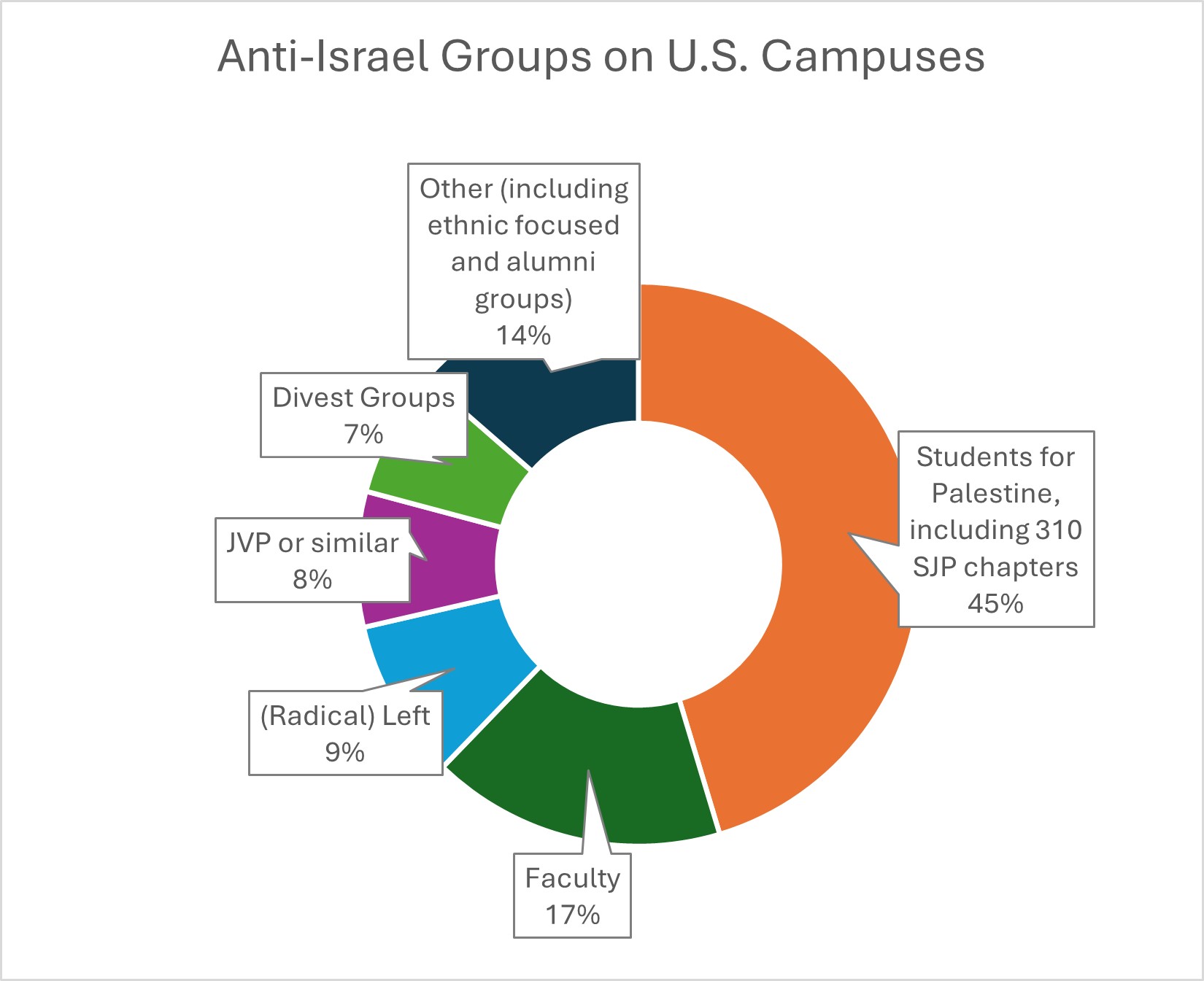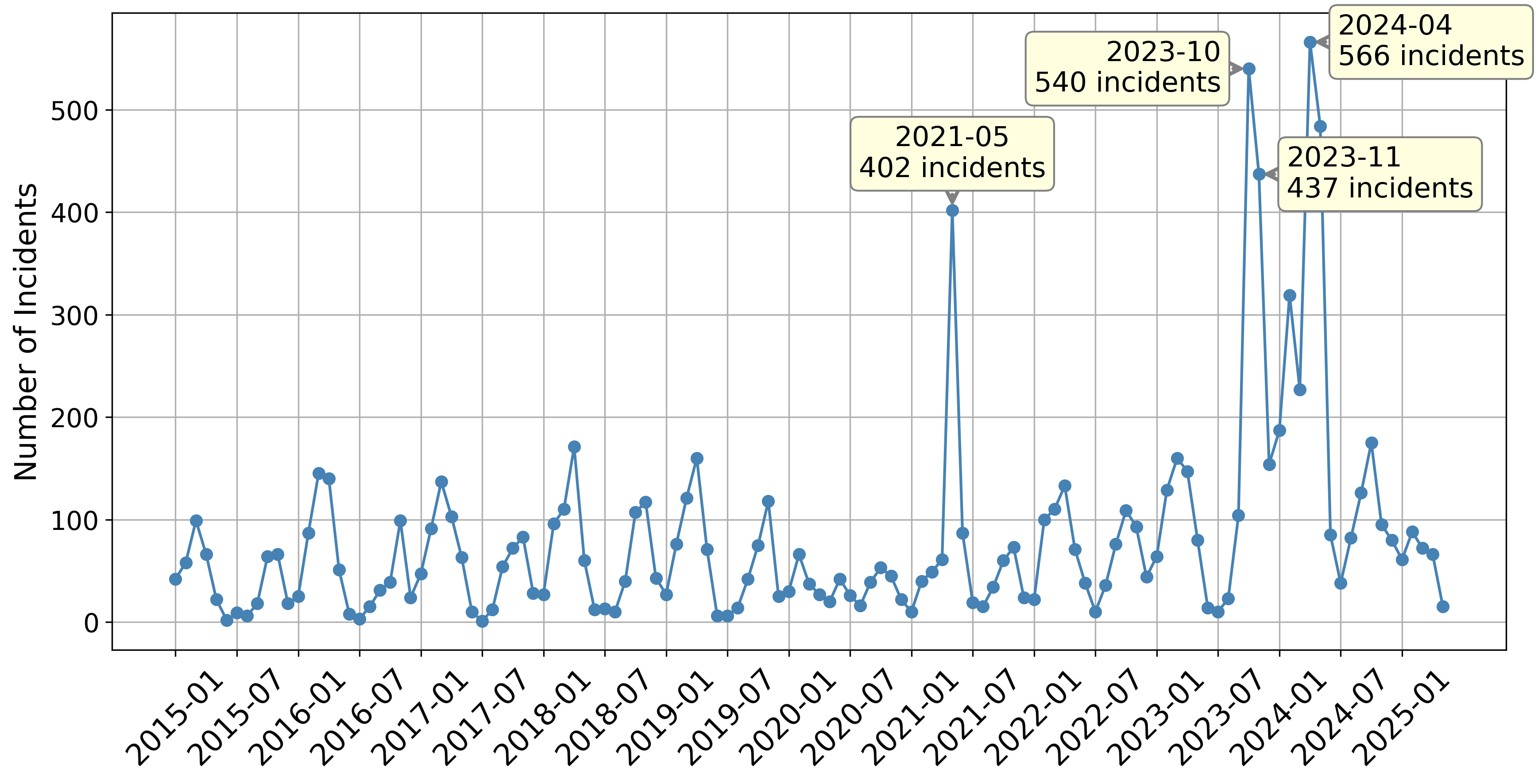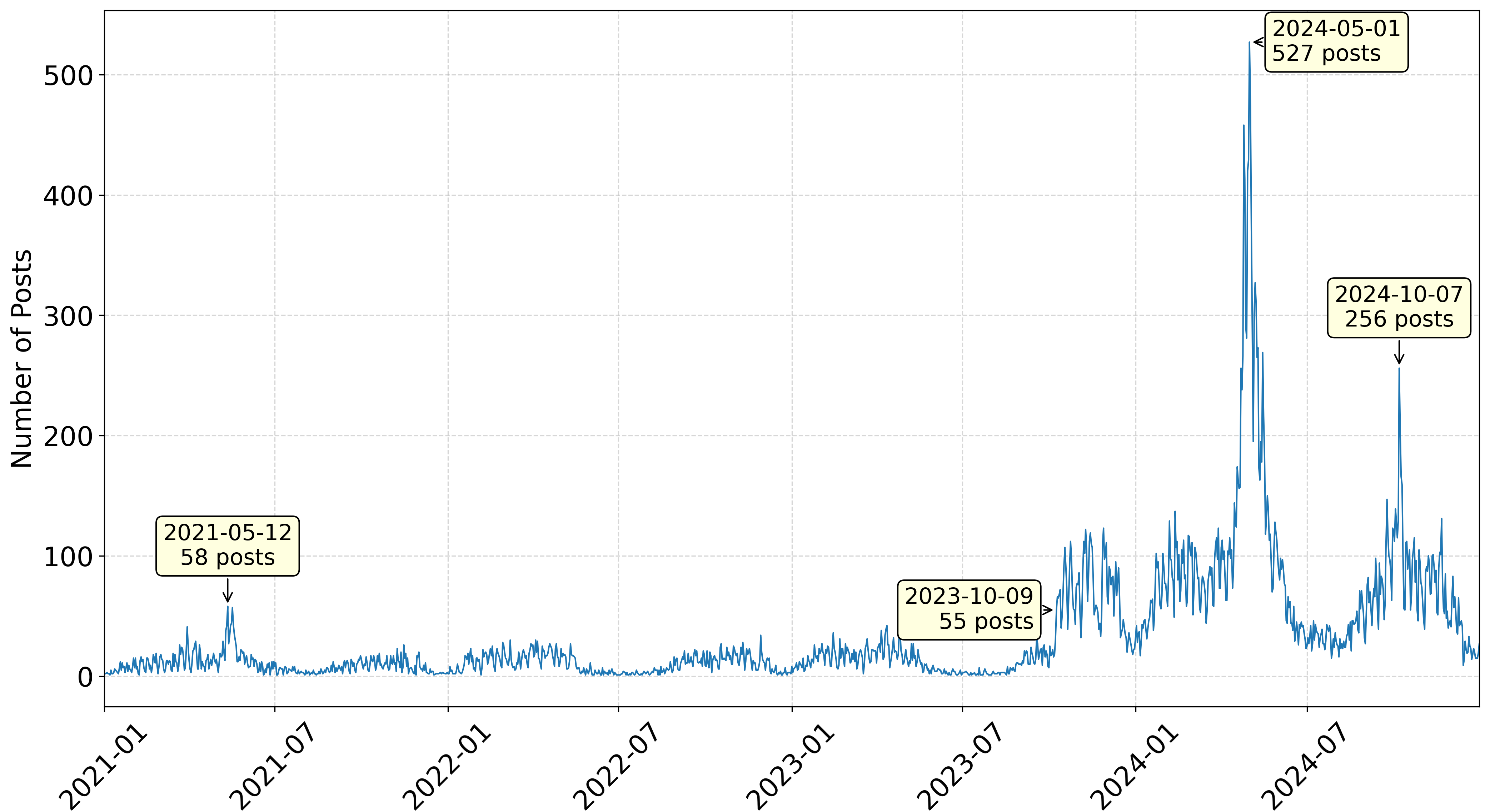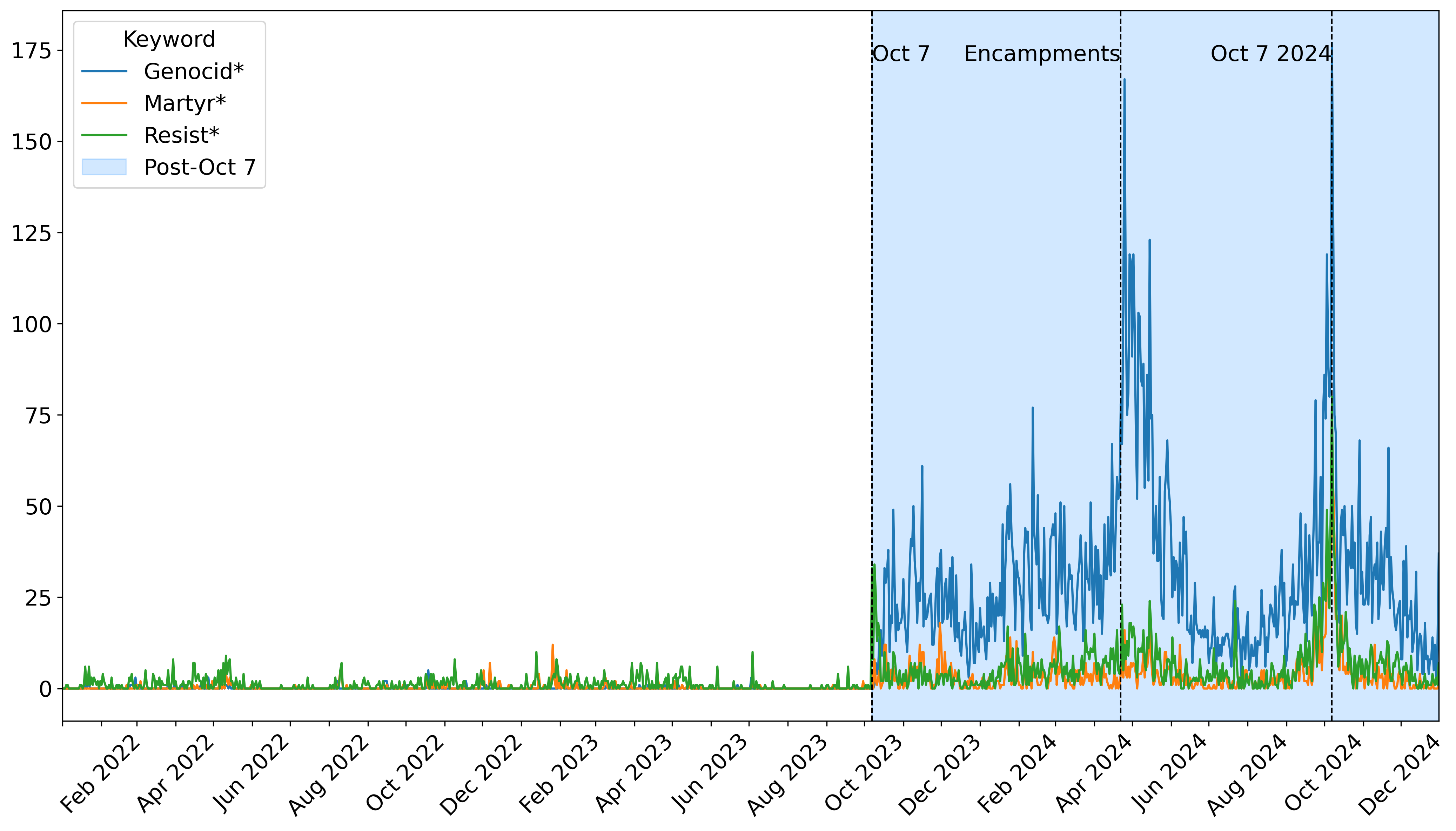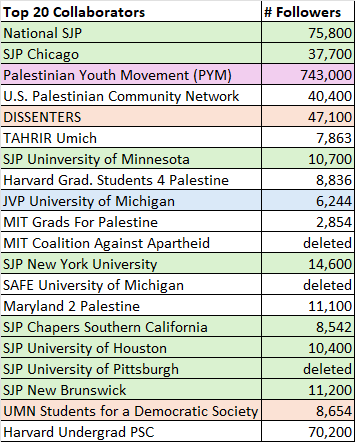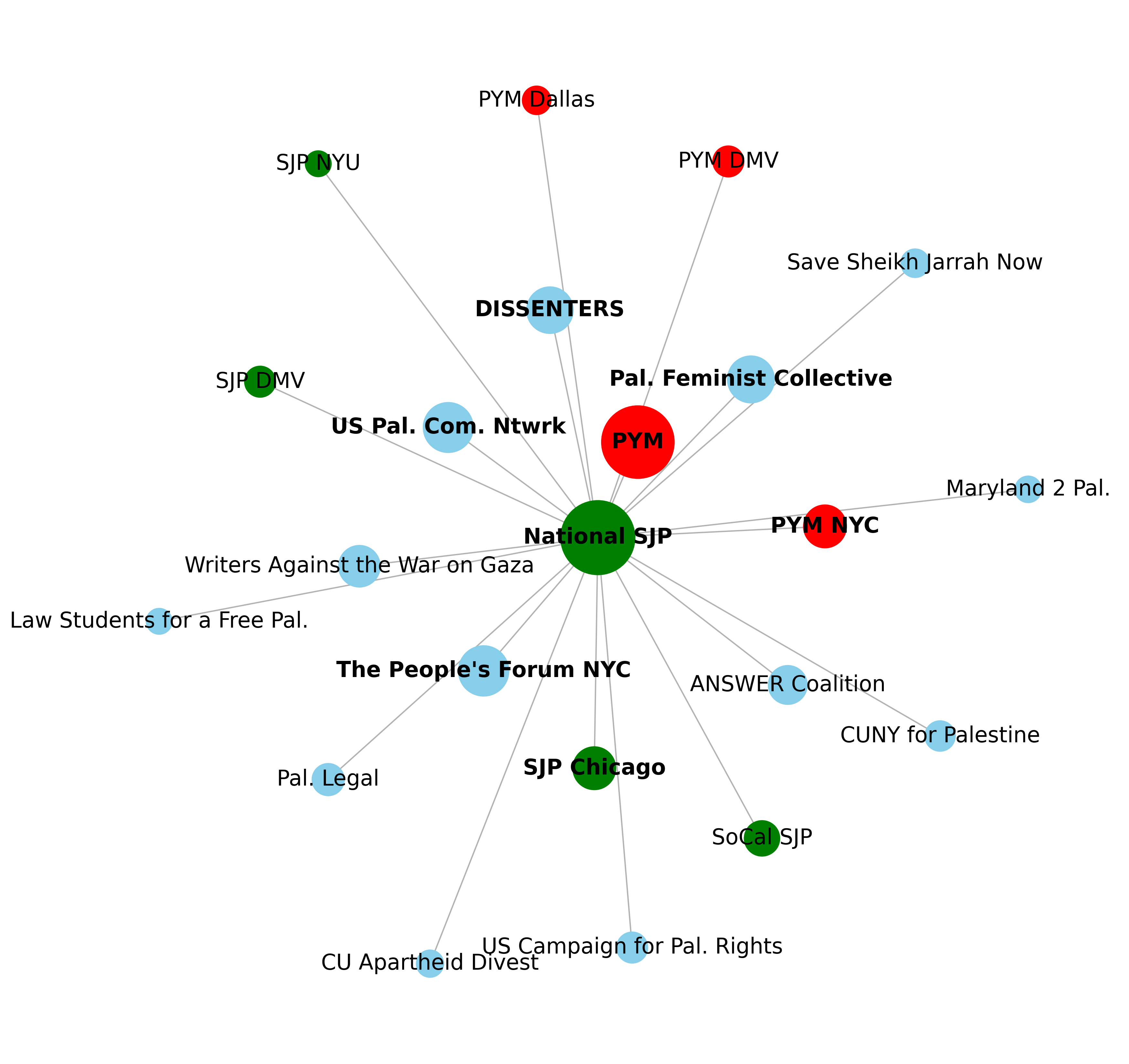Anti-Zionist campus groups in the United States were active well before the Hamas massacre on October 7, 2023, and the ensuing war in Gaza. However, they have increasingly moved to the center of public debate over the boundaries between pro-Palestinian activism, support for Hamas, and antisemitism.
Drawing on a comprehensive dataset—including nearly 10,000 recorded antisemitic incidents, over 1,000 anti-Israel campus groups, and more than 76,000 Instagram posts—this study analyzes how digital coordination, radicalized rhetoric, and offline mobilization have converged on U.S. campuses, particularly in the wake of the October 7, 2023 Hamas attacks.
It identifies the central actors behind a coordinated network of campus and off-campus groups whose messaging increasingly mirrors that of designated terrorist organizations.
Since October 7, radicalized language that was once confined to the fringes—such as the glorification of violence and the demonization of Israel—has gained traction and made inroads into the mainstream of university discourse.
Our analysis shows:
- While most anti-Israel groups are student-run, faculty groups and off-campus organizations also play influential roles (see Images 1, 6, and 7).
- Antisemitic incidents rise during the semester. The highest monthly number of antisemitic incidents occurred in April 2024, during the encampments, folowed by October 2023, directly following 10/7, with another peak in May 2021 during the war in Gaza (see Image 2).
- The presence of anti-Israel groups on campus is strongly associated with higher levels of antisemitic incidents. Quantile regression analysis reveals that this relationship is especially pronounced on campuses already experiencing elevated incident rates. In other words, where antisemitism is already a problem, each additional anti-Israel group appears to contribute disproportionately to its intensification (see Image 3).
- Most anti-Israel campus groups are active on Instagram, using it as a primary tool for outreach, mobilization, and collaboration. Their online activity increased significantly just days after 10/ 7 and peaked during the spring 2024 encampments (see Image 4).
- Radicalized rhetoric invoking “resistance” and “martyrdom,” along with accusations of genocide against Israel, was already present before 10/ 7 but became far more widespread afterward (see Image 5).
- Instagram’s collaboration features enable anti-Israel groups to amplify their reach through shared content. Analysis shows that the most important collaborators are Students for Justice in Palestine (SJP) and their local chapters, followed by the Palestinian Youth Movement (PYM), a non-campus-based group (see Image 6). Both organizations have disseminated radical rhetoric that closely mirrors Hamas propaganda. PYM reportedly has ties to the U.S.-designated terrorist organization Popular Front for the Liberation of Palestine (PFLP). The non-campus group “DISSENTERS,” a group from the radical political left, and “Jewish Voice for Peace at the University of Michigan” are also among the top 10 collaborators of anti-Israel groups active on U.S. campuses.
- A closer look at the National Students for Justice in Palestine (SJP) reveals strong cooperation not only with local chapters but also with PYM and radical leftist groups such as DISSENTERS and The People’s Forum (see Image 7).
These findings highlight the urgent need to understand and confront rising antisemitism and radicalization on U.S. campuses.
PIs: Gunther Jikeli and Daniel Miehling, Research Analysts: Anirudh Suresh Iyer, Prajwal Kaushal, and Trenton Reeves
This research benefited from data collection resources provided by the Bright Initiative powered by Bright Data, as well as data from the AMCHA Initiative, which has been documenting antisemitic incidents and anti-Israel groups on U.S. campuses since 2015. Computational resources were provided by Jetstream2 at Indiana University through allocation HUM200003 from the Advanced Cyberinfrastructure Coordination Ecosystem: Services & Support (ACCESS) program, supported by National Science Foundation grants #2138259, #2138286, #2138307, #2137603, and #2138296.
